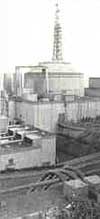JAPAN
 Japan's nuclear dreams nearly went up in smoke when an accident occured at the prototype fast-breeder reactor, Monju, in the second week of December. About three tons of sodium leaked from a cooling system at Monju, necessitating a shutdown. The 280-megawatt reactor is operated by the government's Power Reactor and Nuclear Fuel Development Corporation (PNC). Proponents of Japan's nuclear programme fear the incident would trigger off protests from residents around the potential nuclear power plant sites, creating hurdles for new constructions. However, PNc has allayed fears of radioactive exposure resulting from the leak. Nuclear reactors generate 33 per cent of Japan's electricity. The country is developing nuclear power as an alternative to fossil fuels.
Japan's nuclear dreams nearly went up in smoke when an accident occured at the prototype fast-breeder reactor, Monju, in the second week of December. About three tons of sodium leaked from a cooling system at Monju, necessitating a shutdown. The 280-megawatt reactor is operated by the government's Power Reactor and Nuclear Fuel Development Corporation (PNC). Proponents of Japan's nuclear programme fear the incident would trigger off protests from residents around the potential nuclear power plant sites, creating hurdles for new constructions. However, PNc has allayed fears of radioactive exposure resulting from the leak. Nuclear reactors generate 33 per cent of Japan's electricity. The country is developing nuclear power as an alternative to fossil fuels.
Related Content
- Energy and AI
- Global LNG outlook 2024-2028
- Used heavy- duty vehicles and the environment: a global overview of used heavy-duty vehicles- flow, scale and regulation
- Overcoming the energy trilemma: secure and inclusive transitions
- Pulling the plug on fossils in power
- Clean electricity within a generation: Paris-aligned benchmarks for the power sector
